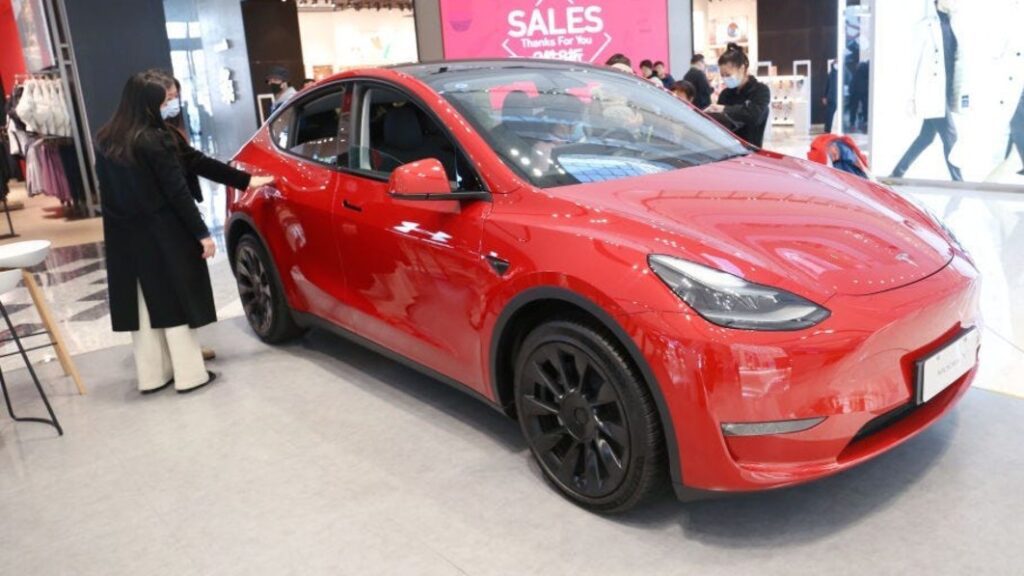EV price war is an all-out fight for customer loyalty — and could mean more discounts on the horizon

2021 Ford Mustang Mach-E.
Tim Levin/Insider
Car companies are duking it out for the number-one spot in the burgeoning electric vehicle market.
Ceding profits to market share is an expensive game of chicken, analysts warn.
This will be a ‘pivotal year’ for establishing customer loyalty in the EV market.
Car companies are betting big on an electric future, but who owns those customers is still up in the air.
In a segment that accounted for just under 6% of the US car market last year, there’s still plenty of room for brands to duke it out for the number one spot, long held by Elon Musk’s Tesla.
A recent study conducted by car-shopping site Edmunds found that electric vehicles are convincing car buyers to change brands at much higher rates than historically seen in automotive retail. That leaves an opening for companies to snag new customers in a business ruled by loyalty.
“There is a window of opportunity to gain share in the burgeoning EV market,” Wedbush analyst Dan Ives wrote in a recent note to clients. “2023 is a pivotal year that will establish the winners and losers in this EV landscape.”
Tesla took the first swing, risking some $7 billion in profits this year to slash the prices on its most popular vehicles by up to 20%. Ford hit back, cutting the price of its electric Mustang Mach-E by between 6% and 8%.
Chasing market share over profits
Both companies are opting to cede profits for market share in a pricey game of chicken, analysts said. Tesla and Ford have cited demand that exceeds supply on the models they’ve discounted, meaning any price cuts “defy logic,” Bank of America analyst John Murphy wrote in a recent note.
While there is more evidence that Tesla is actually selling down some backlogged supply since the end of last year, Murphy still called the move to lower prices “odd.” He warned of long-term impact on profitability for any company undercutting the value of their vehicles.
“The irrational pricing spiral that appears to be beginning on EVs will hopefully be quickly remedied by criticism by investors, if heeded,” he wrote. “If not, we believe there is significant risk.”
‘The time is now’ to win over EV customers
There was some immediate impact among customers for both Tesla and Ford’s price cuts. Tesla saw a surge in interest from new buyers, while Ford customers said they were impressed with Ford’s decision to repay them the difference for their Mach-Es bought at a higher price.
Not every company duking it out for customer loyalty in the EV space is cutting prices. GM – opting out of the pricing war for now – is going after customer loyalty with an EV helpline open to all electric car owners. But if history is any guide, more companies will join in the price slashing if their market share starts to slip.
However a company goes about building EV loyalty, this year is shaping up to be make-or-break for companies as they lure customers to the burgeoning electric car segment.
“The time is now to gain market and mind share with consumers,” Ives wrote, “otherwise they might lose an EV customer forever.”



